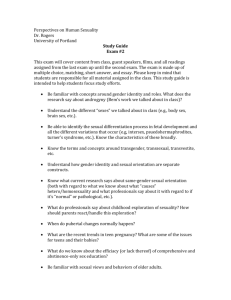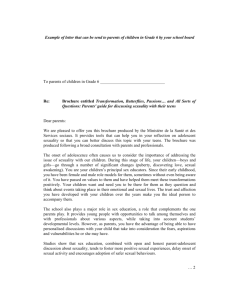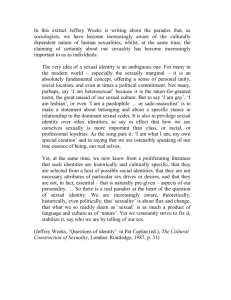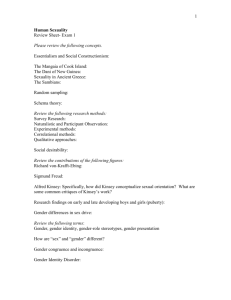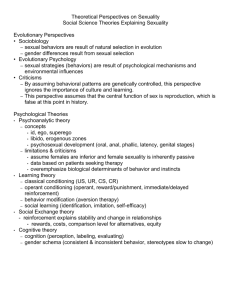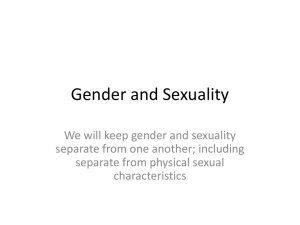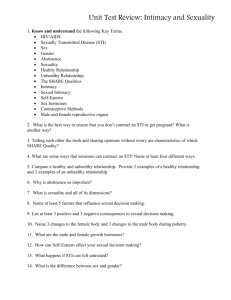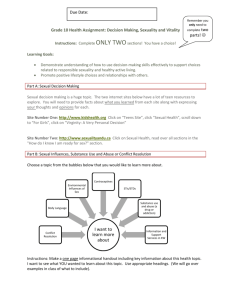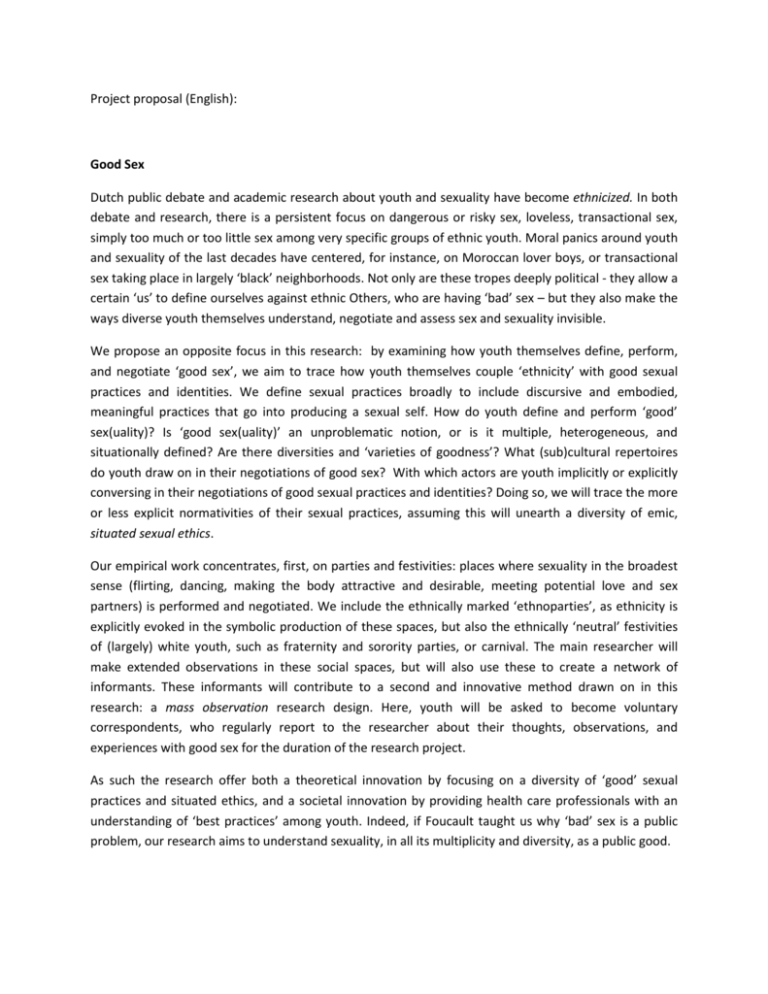
Project proposal (English):
Good Sex
Dutch public debate and academic research about youth and sexuality have become ethnicized. In both
debate and research, there is a persistent focus on dangerous or risky sex, loveless, transactional sex,
simply too much or too little sex among very specific groups of ethnic youth. Moral panics around youth
and sexuality of the last decades have centered, for instance, on Moroccan lover boys, or transactional
sex taking place in largely ‘black’ neighborhoods. Not only are these tropes deeply political - they allow a
certain ‘us’ to define ourselves against ethnic Others, who are having ‘bad’ sex – but they also make the
ways diverse youth themselves understand, negotiate and assess sex and sexuality invisible.
We propose an opposite focus in this research: by examining how youth themselves define, perform,
and negotiate ‘good sex’, we aim to trace how youth themselves couple ‘ethnicity’ with good sexual
practices and identities. We define sexual practices broadly to include discursive and embodied,
meaningful practices that go into producing a sexual self. How do youth define and perform ‘good’
sex(uality)? Is ‘good sex(uality)’ an unproblematic notion, or is it multiple, heterogeneous, and
situationally defined? Are there diversities and ‘varieties of goodness’? What (sub)cultural repertoires
do youth draw on in their negotiations of good sex? With which actors are youth implicitly or explicitly
conversing in their negotiations of good sexual practices and identities? Doing so, we will trace the more
or less explicit normativities of their sexual practices, assuming this will unearth a diversity of emic,
situated sexual ethics.
Our empirical work concentrates, first, on parties and festivities: places where sexuality in the broadest
sense (flirting, dancing, making the body attractive and desirable, meeting potential love and sex
partners) is performed and negotiated. We include the ethnically marked ‘ethnoparties’, as ethnicity is
explicitly evoked in the symbolic production of these spaces, but also the ethnically ‘neutral’ festivities
of (largely) white youth, such as fraternity and sorority parties, or carnival. The main researcher will
make extended observations in these social spaces, but will also use these to create a network of
informants. These informants will contribute to a second and innovative method drawn on in this
research: a mass observation research design. Here, youth will be asked to become voluntary
correspondents, who regularly report to the researcher about their thoughts, observations, and
experiences with good sex for the duration of the research project.
As such the research offer both a theoretical innovation by focusing on a diversity of ‘good’ sexual
practices and situated ethics, and a societal innovation by providing health care professionals with an
understanding of ‘best practices’ among youth. Indeed, if Foucault taught us why ‘bad’ sex is a public
problem, our research aims to understand sexuality, in all its multiplicity and diversity, as a public good.



